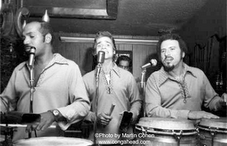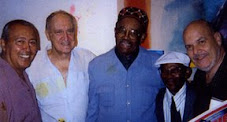
From an Interview with Vincent Livelli by Judy Samuels
In the 1920s, European immigration was at its peak. The Village social parlor was the streets, which were arenas of volatile class tensions as well as communal mixing. The South Villagers, though mostly all Italian, were deeply divided by region and class — the Genoese looked down on the Sicilians; the Sicilians resented Genoese business success and adaptability (They called them the Jews of Italy). Vincent’s Genoese family owned the building they lived in, and their landlordly position stung the Sicilian tenants’ sense of pride.
Walking to school at P.S. 102 on Varick Street, Vincent would be bullied by kids on the street and sometimes spat on from a tenant’s window. He escaped this fate when he walked to Central Park with his older cousin Jimmy. Jimmy worked in the paper box industry in the manufacturing district now called Soho. Sometimes he carried his younger cousin on his shoulders. In Central Park, they would go skating on the frozen lake.
Vincent remembers, as do some of us, when the Jefferson Market Library, back then the Jefferson Market Courthouse, was of a piece with the Women’s House of Detention. The inmates would yell down through the barred windows to the street and throw messages to friends on Sixth Avenue. Around 1974, the Women’s House of “D” was torn down. Today its memory is blanketed under lush flowering plants in a lovingly-tended neighborhood garden.
Vincent was born in Brooklyn and at six months old moved to 117 Sullivan Street, which he shared with his mother, father, grandparents, Aunt Tessie and unmarried Uncle John. Just across the street was the stable where the teamsters’ horses were bedded down. Their carts were parked in the street right outside his window. Before there was window screening, flies from the horses would invade his room. He could look out his window on hot summer days and see the horses returning home tired from pulling the beer wagons through the city streets. He watched as they climbed slowly up the incline to their stalls, and as the impatient teamsters beat them to hurry them up. The misery of the overworked horses came through the window with the breeze that carried the smells of hay and horse urine. At three years old, Vincent saw policemen shoot horses that were foaming at the mouth from exhaustion. He saw them drag the bodies through the streets.
When excavation work began on the Sixth Avenue Subway, Vincent played in the mountains of sand that piled up. He lit the gas lamps in the hallways of 117, held aloft on his grandfather’s shoulders. The building had two communal toilets on each floor — the pull-chain kind — that served three families. The coolest places in the building, in summer they were a popular escape from the stifling apartments.
In the twenties, poisoning from lead paint didn’t recognize class differences. Many children suffered the effects of eating the flaked-off paint chips from apartment walls.
Vincent, despite being affected with permanent severe hearing loss, learned four languages, and learned to dance and love Latin music from his Sicilian mother. For his first lesson, she climbed up on the kitchen table and danced. She told him stories about the Black Cat, the cabaret on West Third Street, and Mori’s Restaurant on West Fourth, popular in the 40s, that had a fountain in its inner courtyard. But the San Remo Bar Vincent discovered on his own.
Located on the corner of Bleecker and MacDougal Streets in the heart of Italian Greenwich Village, it became home to the “Village nobility” of the 1940s and ‘50s. Anatole Broyard, who Vincent met at Brooklyn College, was at the center of a literary circle that included French diarist Anaïs Nin, poet Delmore Schwartz, writers Milton Klonsky and William Gaddis, and other artists and writers.
At Brooklyn College, Vincent was an outsider among the mostly Jewish, staunchly Leftist crowd. Anatole Broyard, the son of a New Orleans carpenter and a light-skinned black man, was equally set apart. They became close friends for the rest of their lives. Though neither of his parents had finished elementary school, their son became a writer and a book critic for the New York Times. In 1938, the two got an apartment together on West Third Street where the rent was ten dollars a month. In 1945, they opened a bookstore at 18 Cornelia Street, which became a literary nucleus in the Village, a favorite hangout for Maya Deren, the high priestess of experimental cinema, and writer Terry Southern, among others. Anatole’s Greenwich Village memoir, Kafka was the Rage, ignited an interest in European literature.
In 1948, after serving in the army in World War II, a cold day job-seeking on Wall Street made Vincent dive into a steamship office to warm up. Destiny must have had a hand because the world suddenly opened up with that steamship office, and, instead of Wall Street, he picked up a job as cruise director on a ship to the Caribbean, a career which would take him to sixty-five countries. Back in New York City, in the midst of the Depression he learned Latin dance at the Park Plaza on 110th Street off Fifth Avenue, where poor Puerto Rican and Cuban families went to reclaim their lost cultures.
In a letter to Anatole’s daughter, Bliss, Vincent told her how her father had “refereed a certain decorum” when engaged in heated literary discussions with others at the San Remo Bar. “Nimble with words, his sentences skipped along, churning the air with words never heard before. . . . “ Tempers raged in this bar atmosphere as people argued their literary opinions. “There were days when they would cross the street to avoid each other because of Proust.”
Late in the 1940s and into the ‘50s, the elegant iron grillwork began to disappear from many Village balconies. NYU began its expansion, and with it the historic streets of the Village were rearranged or broken up. For Vincent this was the time “Anaïs Nin opened her diaries [to the world], Sartre’s ‘Huit-Clos’ opened on Broadway, and the Mob controlled Saints’ Days.” The intimate romance of the Village was disappearing.
The building at 117 Sullivan Street is today a condominium. An apartment in this building with no super rents for $1,300 a month. Vincent Livelli spent the decades of the sixties and seventies traveling the world on cruise ships, a Latin-music missionary. “Is it not better,” he wrote to Bliss, “to follow the way of the self-forgiving solitary traveler?”
Vincent and Anatole were sharers in the post-World War II Village where friendship and love were bound together by love of poetry and literature. “Everyone was writing.” One afternoon, Vincent met James Baldwin coming out of the bar at the Carlton in Cannes, France. “He gave me his number, and when I called, he said he would do a portrait of me, in the style of Matisse or Van Gogh. He once sang for me to keep the cold at bay in his wind-swept loft.”
In 1954, Anatole’s first published story, “What the Cystoscope Said,” gained him status in the world beyond the Village, but strangely prefigured his death from cancer years later in 1990. From his experience as a patient, he wrote the collection of stories Intoxicated by My Illness; it was Anatole’s posthumous gift to the world. In it, he gave a literary voice to illness, suffering, sex, and death. "I’m not interested in the irony of my position,” he wrote. “Cancer cures you of irony. Perhaps my irony was in my prostate.”
Vincent, who “walks the Village with his friend’s ghost, knows this is where his heart still resides, among the landscapes of our happy youth. Thus, we are joined together not in sadness but in the feeling that we were so close to a miracle that we could have saved the world.”


